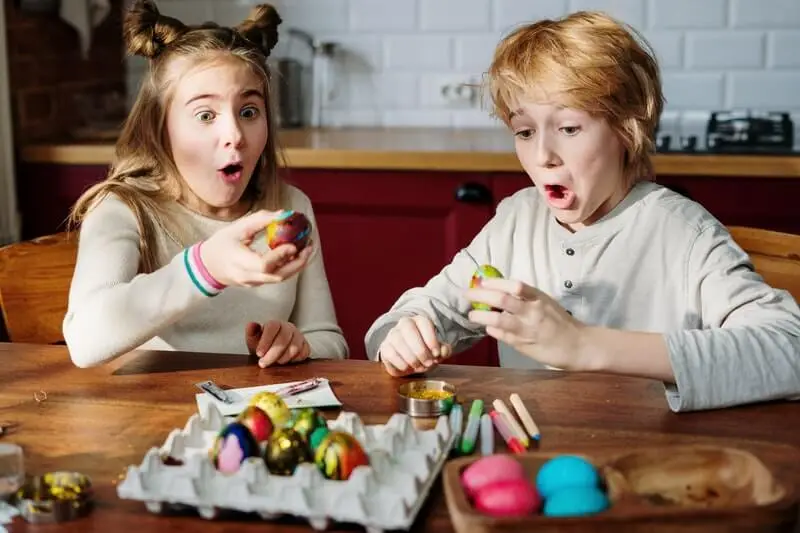Why Failure is Good: The Psychology of Resilience and Growth.

Failure is a word that brings up many emotions—fear, shame, frustration. Most of us have been taught to avoid it at all costs. Yet, strangely, failure can be one of the most powerful ways to grow. In this blog post, I want to talk about why failure isn’t just something we have to deal with, but something that helps us build strength, learn, and eventually succeed.
The Hidden Mentor
I remember vividly the first major failure I encountered. It was when I decided to learn the guitar. I was excited and confident, certain that I’d pick it up quickly. But despite hours of practice, my fingers fumbled over the strings, and the chords sounded off. After a particularly bad performance during a small gathering, I felt humiliated and began to question whether I was cut out for it at all.
What I didn’t realize at the time was that failure wasn’t a sign that I should give up—it was a lesson. Through those early struggles, I learned more about patience, persistence, and the value of consistent effort than I ever had before. It taught me to embrace the process, and eventually, those once-clumsy chords started to come together into real music.
Why Failure is a Prerequisite for Success
Many successful people, from entrepreneurs to artists, have stories of repeated failures before they found their breakthrough. Take Thomas Edison, for example, who famously said, “I have not failed. I’ve just found 10,000 ways that won’t work.” Or J.K. Rowling, who was rejected by multiple publishers before one finally saw the potential in Harry Potter.
The psychology behind this is fascinating. When we fail, our brain is forced to engage in a process of reassessment and adaptation. This is where resilience is born. Each setback strengthens our ability to handle future challenges, making us more adept at navigating life’s inevitable obstacles.
The Science of Resilience
Resilience is the ability to bounce back from difficulties, and it’s a skill that can be cultivated. According to psychologists, one of the key components of resilience is the mindset we adopt in the face of failure. Carol Dweck’s research on “growth mindset” versus “fixed mindset” is particularly relevant here.
A growth mindset embraces challenges and views failure as a stepping stone to improvement. On the other hand, a fixed mindset sees failure as a definitive statement on one’s abilities. Those with a growth mindset are more likely to persevere, learn from their mistakes, and ultimately achieve their goals.

Personal Lessons from Failure: My Guitar Journey
In life, we often hear that success is the ultimate goal, but the truth is, the most significant growth usually comes from moments of failure. Reflecting on my own experiences, particularly with learning the guitar, one thing is clear: failure has been my greatest teacher.
When I first picked up the guitar, I was eager to become proficient. However, the reality was much different. My fingers hurt, my strumming was off, and I struggled to make the chords sound clean. At times, it felt like I wasn’t making any progress. But looking back, I now realize that those moments of frustration and failure were the foundation of my improvement.
The initial struggle taught me patience and perseverance. It wasn’t about getting everything right on the first try or even the second or third. It was about showing up every day, even when things didn’t go as planned. Each time my fingers couldn’t quite reach a chord or my strumming felt out of sync, I was learning. Slowly but surely, I was building muscle memory, strengthening my skills, and developing a deeper connection to the instrument.
But failure taught me more than just technical skills. It taught me empathy. When you’ve experienced setbacks, you gain a greater understanding of the challenges others face. Everyone struggles with something, whether it’s learning an instrument, building a business, or pursuing a dream. Success isn’t linear, and the path is often filled with obstacles. This perspective has helped me be more compassionate towards others and myself.
Looking back, I see failure not as something to fear, but as a valuable tool for growth. It’s a reminder that failure isn’t the end—it’s a part of the journey. It’s the moments of struggle that make the achievements feel that much sweeter. In my guitar journey, every failure has led me to a deeper understanding of music, a stronger resolve, and a greater appreciation for the process.
If you’re facing your own struggles, whether in music or any other area of life, remember that failure is not a reflection of your worth or ability. It’s simply the stage where growth happens. Keep going, because the success that follows will be all the more meaningful for it.
Turning Failure into Fuel
So, how can we shift our perspective to see failure as a positive force? Here are a few strategies that have helped me:
Reframe the Narrative: Instead of seeing failure as a negative outcome, view it as an opportunity for growth. Ask yourself, “What can I learn from this experience?”
Embrace Vulnerability: It’s okay to feel disappointed when things don’t go as planned. Allow yourself to feel, but don’t dwell. Vulnerability is part of the human experience and an essential component of growth.
Set Realistic Expectations: Understand that failure is not the opposite of success; it’s part of the journey toward it. Adjust your expectations to include setbacks as a normal part of the process.
Seek Feedback: Often, we fear failure because we don’t want to confront our shortcomings. However, feedback is a gift that can guide us to better performance. Embrace constructive criticism and use it to fuel your improvement.
Practice Resilience Daily: Build your resilience muscle by stepping out of your comfort zone regularly. Small, daily challenges can prepare you for larger setbacks, making you more resilient over time.

Conclusion: The Silver Lining of Failure
In our quest for success, we often overlook the immense value of failure. Yet, as I’ve discovered through my own journey, it is failure that shapes us, strengthens us, and prepares us for the challenges ahead. It forces us to look inward, reassess, and adapt—qualities that are essential for resilience and growth.
So the next time you face a setback, remember: it’s not the end. It’s merely the beginning of a new chapter—one where you emerge stronger, wiser, and more capable than before. Failure isn’t something to fear; it’s something to embrace.
After all, without the storm, we’d never appreciate the beauty of the rainbow.